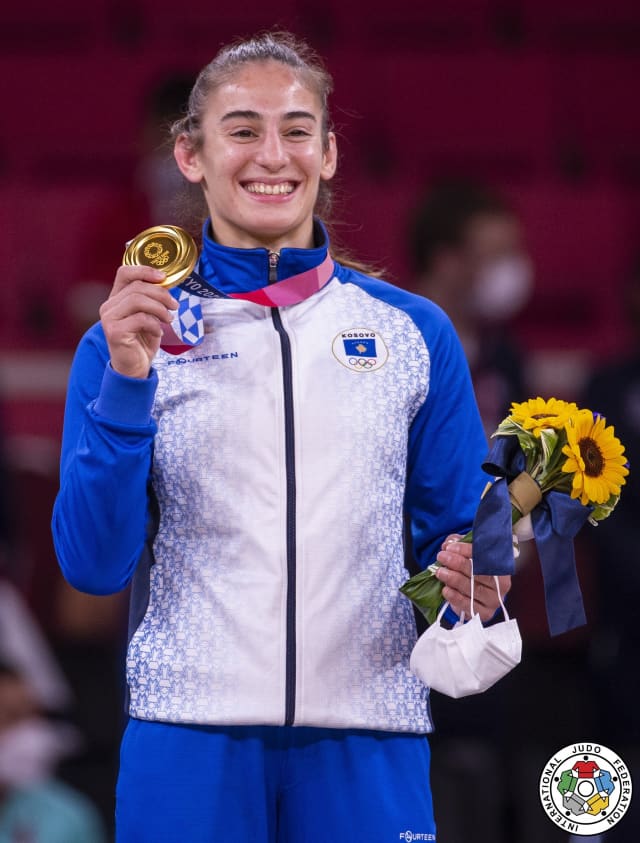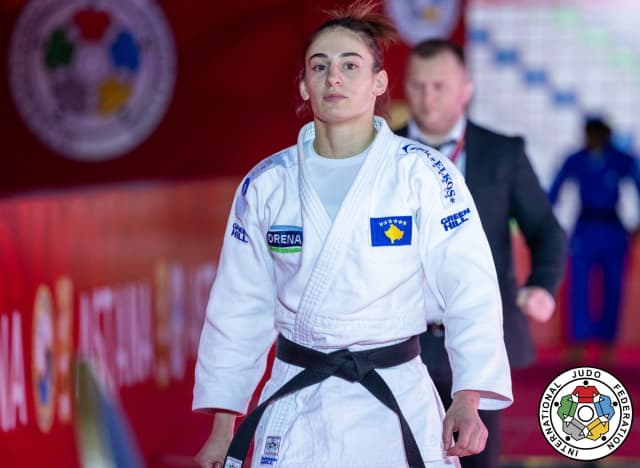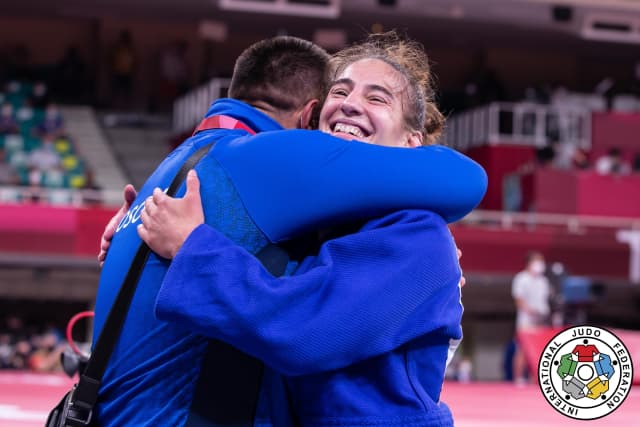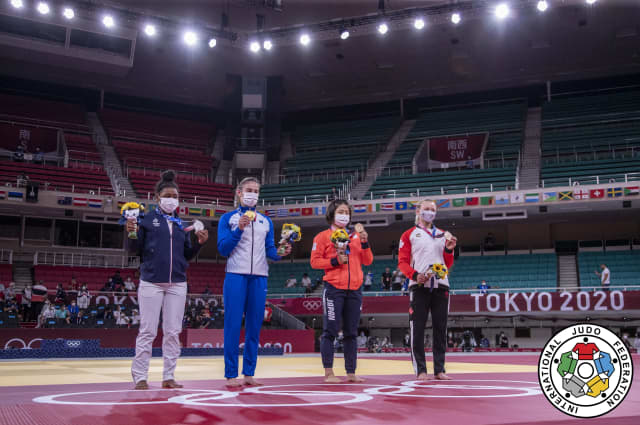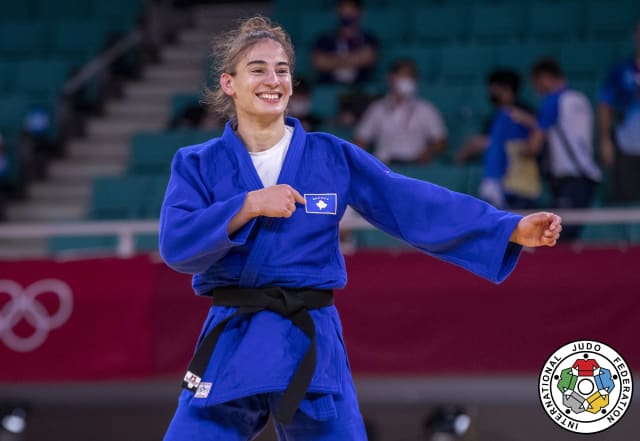We introduced the statistics, the almost impossible feat and the question in our first article in the series, which can be found here:
https://www.ijf.org/news/show/151-olympic-champions-tokyo-to-tokyo
A reminder of the question:
It could be said that to be in the company of an Olympic judo champion is to be presented with someone whom has reached an absolute pinnacle, a ceiling which cannot be surpassed; there is nowhere further to ascend in the world of sport. We often find Olympic champions speaking with freedom and certainty, unafraid to share an opinion, speaking of their lives and paths with confidence. For many we feel there is peace, and that can be magnetic and inspiring.
So the question is, did they become Olympic champion because of that character or did they become that person having won the Olympic gold medal?
Nora Gjakova is one of a small minority of our Olympic champions to be interviewed about her incredible achievement while still an active competitor. She is on the way to qualifying for the Paris 2024 Games, having won gold in Tokyo in the last cycle. The interview was conducted in the warm-up area at the 2023 Astana Grand Slam.
“I don’t yet know how to enjoy what I have already achieved because I am still so deep inside the process.
Before I started judo I remember being a girl who liked to play with Barbie dolls. I was the first child of my parents and maybe I was somewhat spoiled but outside of home I was really competitive and would be the leader, the main character of the group.
It changed when I started judo; it was different becasue I was new there and so wasn’t the centre of attention. My father took me and my brother Akil to a club in Peja, to Toni Kuka. It was different from any other environment I had been in and I had to fight a lot. It was hard for me, not to be the centre of attention, with so many girls there who were older, better and stronger than me."
"It was not an option for me to quit though and I had to learn patience. It was clear that if we missed training we would not have the right attention from the coach. My consistency then played a big role in who I am today. I kept training until I was 13 or 14 and at that time my coach came to me and said that from then on we would change to twice per day and it will not be the same fun as in the past. He always pushed me before that but this was a big step.
I had to work hard with myself to make myself believe. It’s very important for me to do it all correctly; I need to work hard in order to believe I deserve to win. I won 6 European medals before the world medal and then the next step was the Olympic medal, in the same year but it all came in order, one step at a time."
"Even before things changed to the more serious programme, from the beginning it was usually 7 days a week training but going to twice per day was so hard, especially with Toni, with the long technical training sessions, sometimes up to 3 hours, sometimes just two of us, maybe me and Majlinda. I trusted him straight away from when I started at ten and when he made this change I knew how much effort I had already given and so it wasn’t an option for me to say no. I already wanted to push past my limits and break my own ego. I didn’t like to lose.
At the beginning we had no specific, talked-about objective and our context was totally different from how it is now. At the beginning we couldn’t represent a country as ours didn’t exist, there was no Kosovo recognised globally. I represented Albania as a cadet and then the IJF but eventually in 2009 we could begin as Kosovo for the first time."
"With regard to the original question, my character was always there but when added to the coach, in an environment where there was no place for someone who just wants to do it for fun; it was a serious programme and this was the meaningful combination. Judoka must decide to accept all the training. Toni is also very competitive and coached us to work like this and to think this way. He extended who I already was.
Maybe there hasn’t been time yet for there to be an effect from the winning of the Olympic gold medal. Judo doesn’t ask if you are Olympic champion when you’re on the mat; you are equal to everyone and so I have to train like I did before it. I must enjoy the process. I’m grateful to have the chance to live in a way that most people cannot or maybe don’t have the chance to. I know it won’t last forever and so I continue in gratitude. Maybe nothing else can push us to go through so much like judo can and so I’m truly appreciative of it. I continue to work this hard and to push myself because it’s what I enjoy most.”

